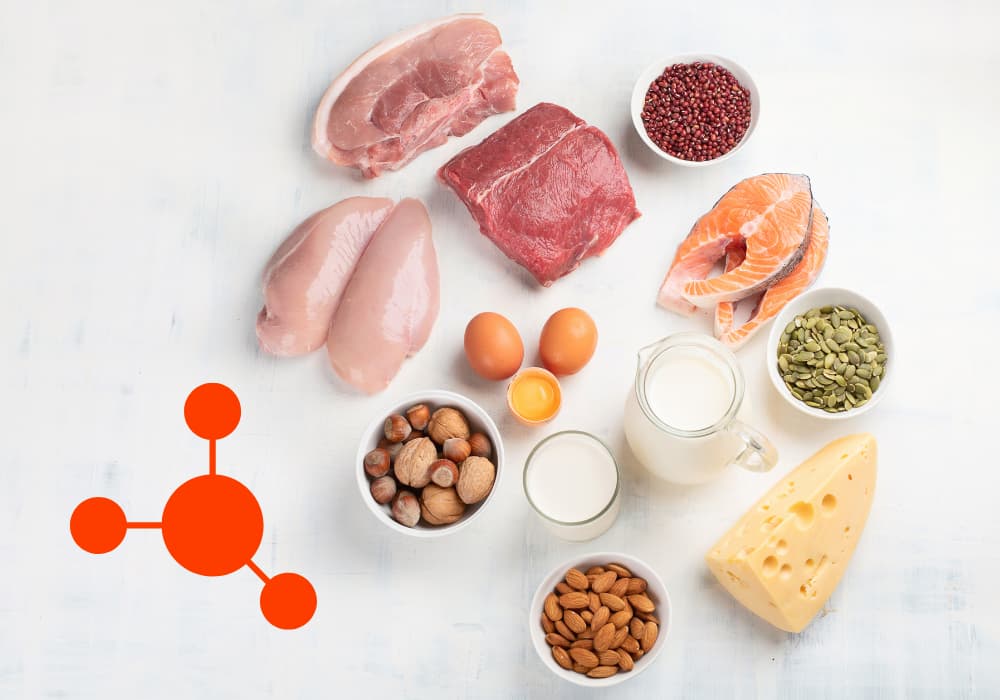Understanding protein digestion and absorption is crucial for optimising muscle growth and recovery. Misconceptions about protein intake limits abound, but recent insights clarify the body’s ability to process protein effectively. This Q&A addresses common questions and provides evidence-based answers on protein consumption.
The Myth of the 30g Limit
Many sources claim the body can only digest 30 grams of protein per meal. However, this is a myth perpetuated without solid scientific backing. While studies on senior citizens suggest limited protein processing, these findings are not universally applicable.
Historically, humans survived on feast and famine cycles, consuming large quantities of protein when available. Our bodies adapted to these conditions, developing the capacity to process varying amounts of protein efficiently. This evolutionary background suggests strict limits on protein intake per meal are unlikely.
Variability in Protein Processing
The exact amount of protein one can process in a single sitting varies widely among individuals. Factors influencing protein digestion and absorption include muscle mass, gut health, age, and activity level. While we can’t pinpoint a precise number, it’s clear that individuals with higher muscle mass and better gut health can process more protein effectively.
Protein in Muscle Building and Recovery
Protein is essential for muscle repair and growth, especially during high exercise. Increased protein intake supports these processes, indicating that the body utilises protein effectively during physical stress. This utilisation suggests that higher protein consumption can benefit athletes and bodybuilders.
Studies often cited to support the 30g limit primarily involve older adults with decreased stomach acid and digestive efficiency. These results should not be generalised to younger, active populations. Athletes and bodybuilders routinely consume and benefit from larger protein doses, reflecting their greater protein needs and digestive capacities.
Protein Intake for Different Goals
- General Health
Most adults need 0.8 grams of protein per kilogram of body weight daily to support general health and maintain lean body mass. Adjustments can be made based on individual activity levels and health goals.
- Muscle Building
Those seeking to build muscle may require 1.6 to 2.2 grams of protein per kilogram of body weight daily. This higher intake supports muscle repair and growth, especially with resistance training. Balancing protein with adequate carbohydrates and fats ensures optimal digestion and overall health.
- Fat Loss
Increasing protein intake to 1.2 to 1.6 grams per kilogram of body weight can aid in fat loss by promoting satiety and preserving muscle mass during caloric restriction. A varied diet incorporating plant-based proteins can help maintain balance and avoid excessive animal protein intake.
- Endurance Training
Endurance athletes need 1.2 to 1.4 grams of protein per kilogram of body weight to support muscle recovery and energy metabolism. A mix of protein sources, including lean meats, dairy, nuts, and seeds, ensures a comprehensive nutrient profile.
Quality Over Quantity
The quality of protein consumed is as important as the quantity. High-quality, minimally processed protein sources maximise health benefits. For optimal protein intake, focus on lean meats, fish, eggs, dairy, legumes, and nuts.
While the myth of a strict 30g protein limit per meal persists, evidence shows that individual needs and capacities vary. Understanding your body’s unique requirements and focusing on high-quality protein sources can help optimise muscle building, recovery, and overall health. Adjust your protein intake based on your specific goals and individual factors to achieve the best results.
We help our members with a nutritional programme that works for them; if you’re struggling, give us a shout at one of our personal training gyms in London, and we’ll help you work out a plan that suits you.
You may also find our nutritional e-books helpful to eating healthier.
Related Articles
- How Many Grams of Protein Should I Be Consuming Daily?
- What to Eat to Live Longer (and feel better)
- Women: Why Protein Can Help You Get In Better Shape
- Why Have I Been Advised to Eat More Fat?
- The Role of Carbohydrates, Fats, and Proteins in Fuelling the Aerobic Energy System

